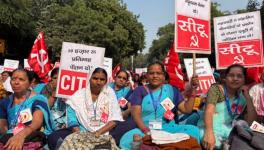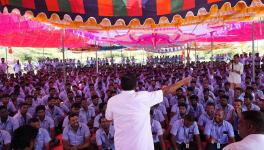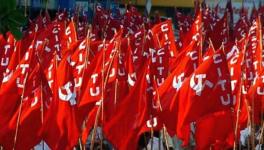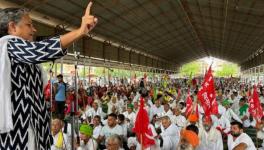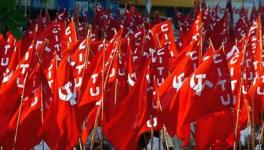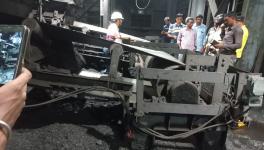Asansol Coal Workers Convention Staunchly Opposes Privatisation
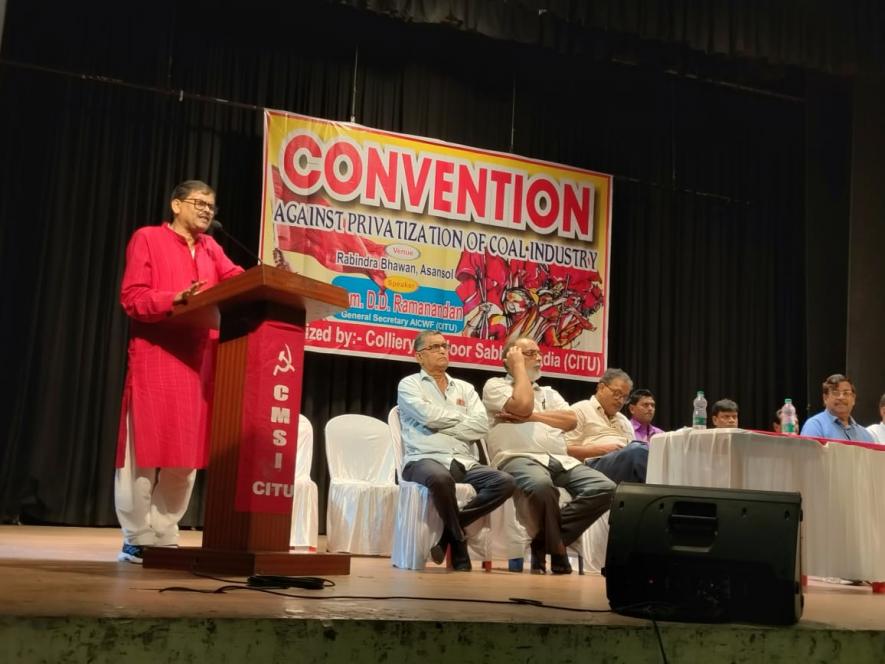
Kolkata: Kalimuddin Ansari, a coal worker and secretary of CITU-affiliated Colliery Mazdoor Sabha of India (CMSI), in Kunustoria Area of Eastern Coalfields Limited (ECL), located in West Bengal’s Asansol subdivision, feels that the government is handing over active collieries to private companies.
“The Centre has sold 37% shares of Coal India Limited to the private sector. Under the mine revenue-sharing policy, the government is handing over active collieries to the private sector,” Ansari tells Newsclick.
“It happened in the Jharkhand’s Shyampur B Colliery. It is going to be replicated at Asansol’s Chinakuri III coalmine,” he adds.
According to Ansari, under the revenue-sharing model, a private company can do full-fledged mining in lieu of four per cent of profit. “We staunchly oppose the revenue-sharing model.”
Ansari and thousands of other coal workers participated in an anti-privatisation convention held at Asansol’s Rabindra Bhawan.
“Cola India shares have been transferred to private companies in multiple batches,” Coal Workers Federation of India general secretary DD Ramanandan told the gathering.
“The revenue-sharing model, introduced in 36 coalmines, has been staunchly opposed by Chinakuri workers,” he added.
CMSI general secretary and former member of Parliament Bansagopal Choudhury and coal workers union leader Gouranga Chatterjee were present at the convention, presided over by veteran coal union leader GK Srivastav.
The leaders also expressed weariness about the “decreasing employment opportunities” in the coal sector. According to the speakers, trainees are hired for permanent work and exploited.
When the coal sector was nationalised, the speakers said, annual production was 69 million tonnes (MT). In the current financial year, the production target is 780 MT, which shows that workers are completing their assigned targets. “The rate of increase in productivity is 11%.”
The convention expressed grave concerns at the “recent surge in illegal mining” in the region. Three people died while trying to illegally extract coal from ECL’s Narayankuri colliery in Raniganj last week. The convention demanded exemplary punishment and proper policing of the coal belt to stop such deaths and illegal coal mining.
In recent years, the coal industry saw a 50% slump in permanent workers. In the 1990s, ECL employed around 1,82,000 permanent workers, which has come down to 52,000.
To maintain the production capacity at 100%, ECL is outsourcing its operation to outsourced partners. These partners employ contractual workers, who excavate more than 70% of coal from opencast mines. These workers work for 12 hours daily at meagre wages without any benefits/incentives like provident fund. They work in areas devoid of food outlets, toilets or water.
In ECL, 33 projects have been outsourced. Many workers have migrated from other states, leading to job scarcity for the local population.
Birju Yadav, of Bansra area and a CMSI member, told Newsclick that the contractual workers are exploited as they cannot unionise without risking their jobs.
“Roofing and transporting products are done through third-party outsourcing. There are three types of mines in the region: mines wholly operated by ECL, ones outsourced to partners work and captive ones, where only outsourced contractual workers and excavators work,” Yadav said.
In Bansra and North Searsole (East) opencast projects, most workers are outsourced. “According to Coal India, there are about 2.5 lakh workers while 75,000 contractual ones. However, the number of contractual workers could be three to four lakhs,” Yadav claimed.
Get the latest reports & analysis with people's perspective on Protests, movements & deep analytical videos, discussions of the current affairs in your Telegram app. Subscribe to NewsClick's Telegram channel & get Real-Time updates on stories, as they get published on our website.










